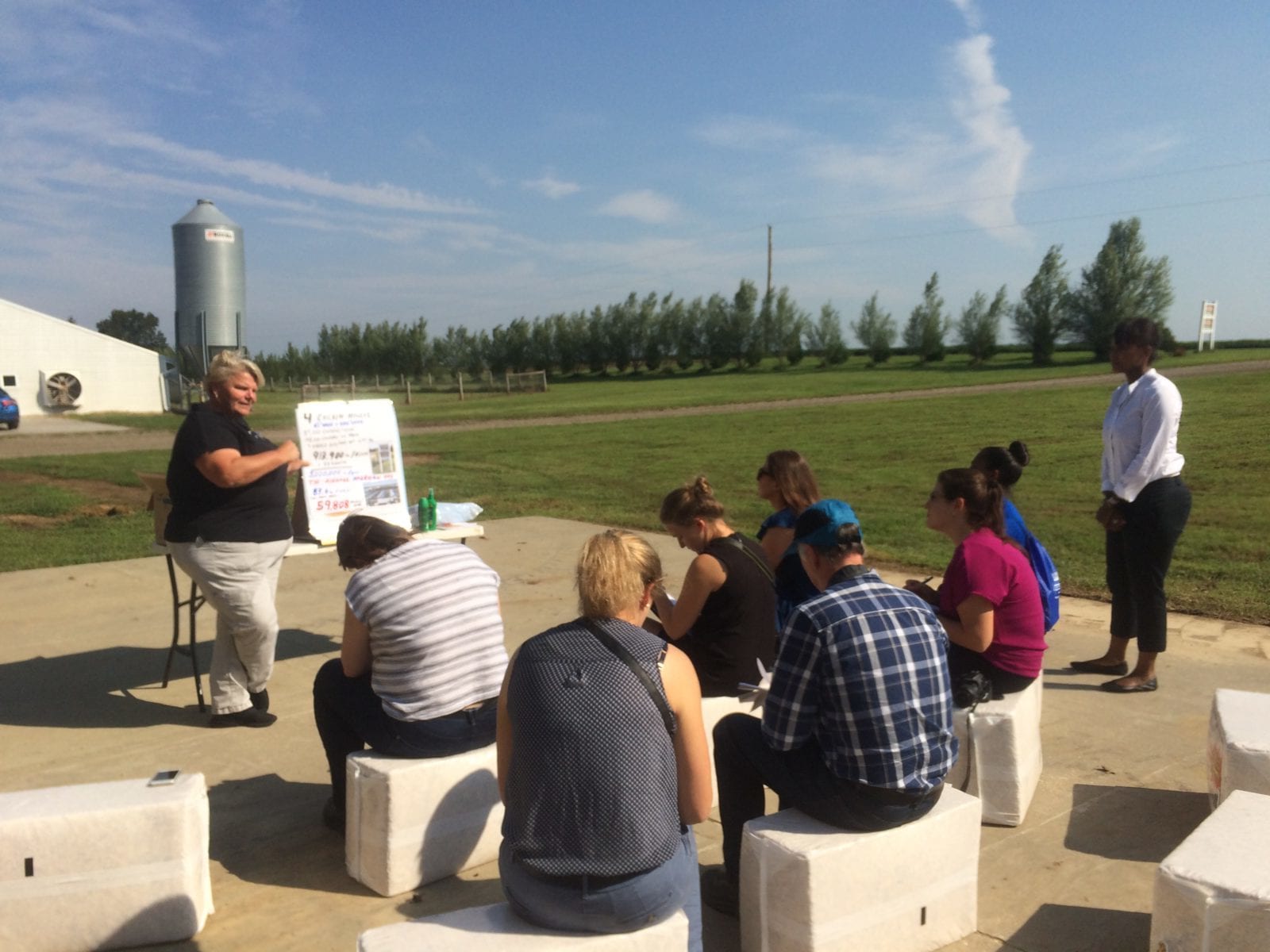European Ag Journalists visit Delmarva Peninsula
- Category:
- General News
- Sustainability

As part of a USSEC-supported tour focused on sustainability and sustainable soybean production, six European agricultural journalists recently spent a day visiting farms in Maryland and Delaware. The visits were organized in close cooperation with the Maryland and Delaware State level offices of the U.S. Department of Agriculture’s (USDA) Natural Resources and Conservation Service (NRCS). Representatives from those offices joined the group for the visits, including state conservationists Terron Hillsman of Maryland and Kasey Taylor of Delaware.
The day began with a visit to Bluestem Farm in Chestertown, Maryland. Evan Miles and his family produce soybeans, corn, wheat, peas and sweet corn on 3000 acres. Mr. Miles works closely with researchers from nearby Washington College to improve wildlife habitat, specifically for the bobwhite quail. He has planted warm season grasses and created riparian buffer strips to attract the seriously threatened bobwhite quail. Other conservation practices include no-till on 80 percent of the land and widespread adoption of cover crops. They produce both non-GM and GM soy including Plenish® and cultivate 150 acres of organic soybeans. Mr. Miles noted that producing non-GM and organic beans is much more complicated, from the identity preserved (IP) requirements to weed control. The visit ended with a quick tour of his new packing and sorting shed, completely dedicated to organic beans.

The next stop was at the poultry farm of Georgie Cartanza in Dover, Delaware. In addition to raising organic chickens, Ms. Cartanza is a poultry extension agent with the University of Delaware and her knowledge and communication skills were evident. She gave an overview of the poultry industry in the Delmarva Peninsula, one of the most concentrated in the United States, noting that agriculture, mostly poultry production, is the number one industry in Delaware. Working with NRCS, Ms. Cartanza has installed manure storage structures, composters, and heavy use area pads to control and reduce nutrient runoff, a key environmental issue in the region. She said that they need to import organic soybeans from Turkey and Argentina to meet the local demand. The highlight of the visit was gearing up and entering one of the chicken houses.

The final visit was to the farm of Aaron Thompson and his family in Hartly, Delaware. The visit started with an all-American barbeque lunch. The Thompson family cultivates 1300 acres of wheat, corn, and soybeans, along with raising poultry. No-till in part since 1975, they have worked with NRCS and have adopted cover crops and nutrient management practices in order to improve soil quality and reduce runoff. The group enjoyed meeting the whole family and appreciated the insights into the challenges and opportunities of producing high quality products in a sustainable and environmentally sound manner for the ever-demanding market. Sustainability is nothing new as improving the soil, reducing the environmental impacts and better management of their resources helps ensure that their children and grandchildren will continue to be able to farm the land.
